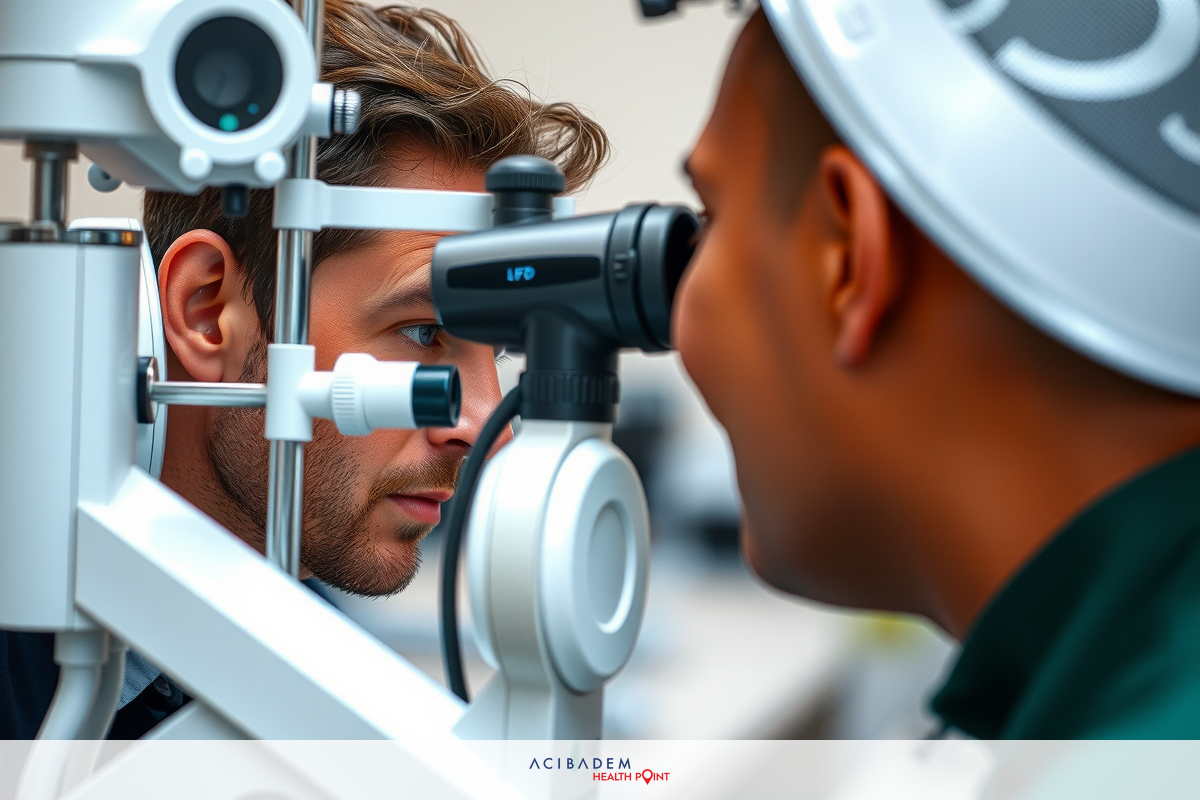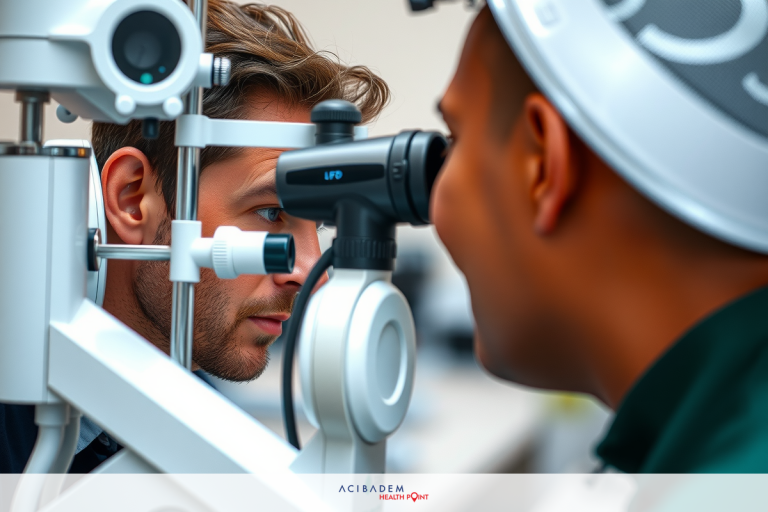How Long Does LASIK Eye Last
How Long Does LASIK Eye Last LASIK eye surgery, a marvel of modern medicine, provides a compelling solution to many vision issues. Despite the popularity and success rates of this optometric intervention, one question frequently arises – how long does it really last? This article seeks to dispel any uncertainties surrounding this topic.
The duration of LASIK eye surgery’s effectiveness is as intriguing as it is multifaceted. It entails an understanding not only of the procedure itself but also its aftermath—the recovery process and expected longevity of results. So come with us on this journey towards clearer vision and greater understanding about the lasting impact of LASIK.
What is LASIK Eye Surgery?
LASIK eye surgery, in essence, is a corrective procedure targeting the cornea—the transparent front part of the eye. This refractive surgery changes your cornea’s shape to focus light onto your retina more accurately. It offers a solution for vision-related issues like myopia (nearsightedness), hypermetropia (farsightedness), and astigmatism—a condition where the eye does not focus light evenly on the retina.
The brilliance of LASIK lies in its ability to transform lives by improving visual acuity without reliance on eyeglasses or contact lenses. Imagine waking up with clear vision, free from blurry outlines and distorted images! However, it’s essential to remember that while this intervention drastically enhances clarity and focus, it doesn’t guarantee perfect sight—some patients may still need reading glasses as they age.
Moving towards understanding the longevity factor of LASIK surgery requires acknowledging its two-stage process: preparation and operation. The initial stage involves detailed measurements of your eyes using an instrument called a corneal topographer. This device creates a highly detailed map of your cornea—its steepness, flatness, thickness—which guides surgeons during laser treatment.
Now picture this: you’re lying back in a comfortable chair; there’s an intricate machine above you emitting soft lights while gently guiding lasers over your eyes—it might sound futuristic but that’s precisely what occurs during LASIK surgery! A surgeon uses these lasers to reshape your corneas based upon previously taken measurements which help correct refractive errors ensuring better focusing abilities for light entering our eyes.
In essence then—how long does LASIK last? Well it depends on many factors including one’s individual healing process as well as how severe their original prescription was before undergoing treatment but typically results are seen very quickly after procedure often within 24 hours!
How Long Does the Procedure Take?
When one thinks of “surgery,” a prolonged period often comes to mind, filled with extensive preparations and recovery time. However, LASIK eye surgery defies these common perceptions. In stark contrast to many surgical procedures, LASIK is renowned for its swift execution—often completed in under half an hour!
The initial part of the procedure takes up most of this time—preparing your eyes for the laser treatment. Your surgeon will apply numbing drops in your eyes to ensure you experience minimal discomfort during the process; then using an instrument called a microkeratome or femtosecond laser, they create a thin flap on your cornea’s surface.
Once this flap is carefully lifted by your surgeon, another specialized laser—the excimer—is used to reshape the underlying corneal tissue – all using precise measurements taken beforehand! This stage typically only lasts about 60 seconds per eye, which may seem incredibly quick given its crucial role in improving vision.
Post-laser application involves repositioning that previously created corneal flap back into place—a step that

requires no stitches due to natural adhesion properties within our eyes! Yes—you read it right: No needlework required here! Instead, nature takes its course as healing begins immediately once that protective layer settles down over reshaped cornea.
So let’s revisit our original question: How long does the actual procedure take? While pre-and post-surgery preparations can extend this timeline (think check-ups and follow-up appointments), LASIK itself stands out for its speediness—an average session lasting around 20-30 minutes from start to finish! Of course individual experiences vary but majority patients find themselves stepping out office with potentially improved vision minutes after walking in!
Thus despite sounding like science fiction with lasers and flaps—it’s actually quite succinct affair transforming lives dramatically yet efficiently through power modern medicine technology combined skill experienced surgeons ensuring optimal results each patient.
Recovery and Longevity
Upon completion of LASIK eye surgery, the journey towards improved vision truly begins—as does the healing process. The recovery period is a critical phase where your eyes start adjusting to their new refractive status. Although individual experiences may vary, most patients report noticeable improvements in visual acuity within 24 hours!
In terms of immediate post-surgery care, you’ll be advised to rest for a few hours after leaving the clinic—your eyes have just undergone a transformative procedure, after all! It’s common to experience some discomfort like dryness or itching during this period; however, these symptoms usually subside quickly.
Your surgeon will provide detailed instructions for at-home care which largely revolve around protecting your newly treated eyes from potential hazards such as dust or direct sunlight. Similarly regular use prescribed eye drops aids in maintaining moisture levels preventing infections ensuring smoother recovery overall.
One crucial aspect often overlooked when discussing LASIK longevity pertains not only to physical healing but also psychological adjustment – adapting life with clearer vision can indeed require time! Whether it’s getting used reading road signs distance without squinting waking up seeing world sharp detail every morning—this transition while exciting might take few days get accustomed too.
So how long do results last? Well here’s interesting fact: While aging natural changes our bodies could potentially impact effectiveness over time studies shown that majority patients maintain significant improvement in their vision years following procedure! This speaks volumes about its enduring nature making it worthwhile investment those seeking freedom glasses contacts.
It’s important remember that regular check-ups are indispensable part maintaining optimal sight post-LASIK. These visits allow doctors monitor your progress make necessary adjustments if needed thus ensuring continued satisfaction outcome adding further credibility this remarkable intervention’s longevity track record.
Frequently Asked Questions
How soon can I return to work after LASIK eye surgery?
Most patients feel ready to resume their usual activities within a day or two post-surgery. However, it's best to consult your doctor who can provide personalized advice based on your specific circumstances.
Is the procedure painful?
No, LASIK is generally not painful. Numbing drops are used prior to the operation and mild discomfort may be experienced once these wear off but severe pain is not typical.
Will I need glasses or contact lenses after the procedure?
While many people no longer require corrective eyewear following LASIK, some might still need them for certain tasks like reading or driving at night—especially as they age.
What if my vision changes again years down the line? Can I have another LASIK procedure?
It depends on individual circumstances including corneal thickness overall eye health among other factors. Your doctor will be able to advise you accordingly during follow-up exams.








